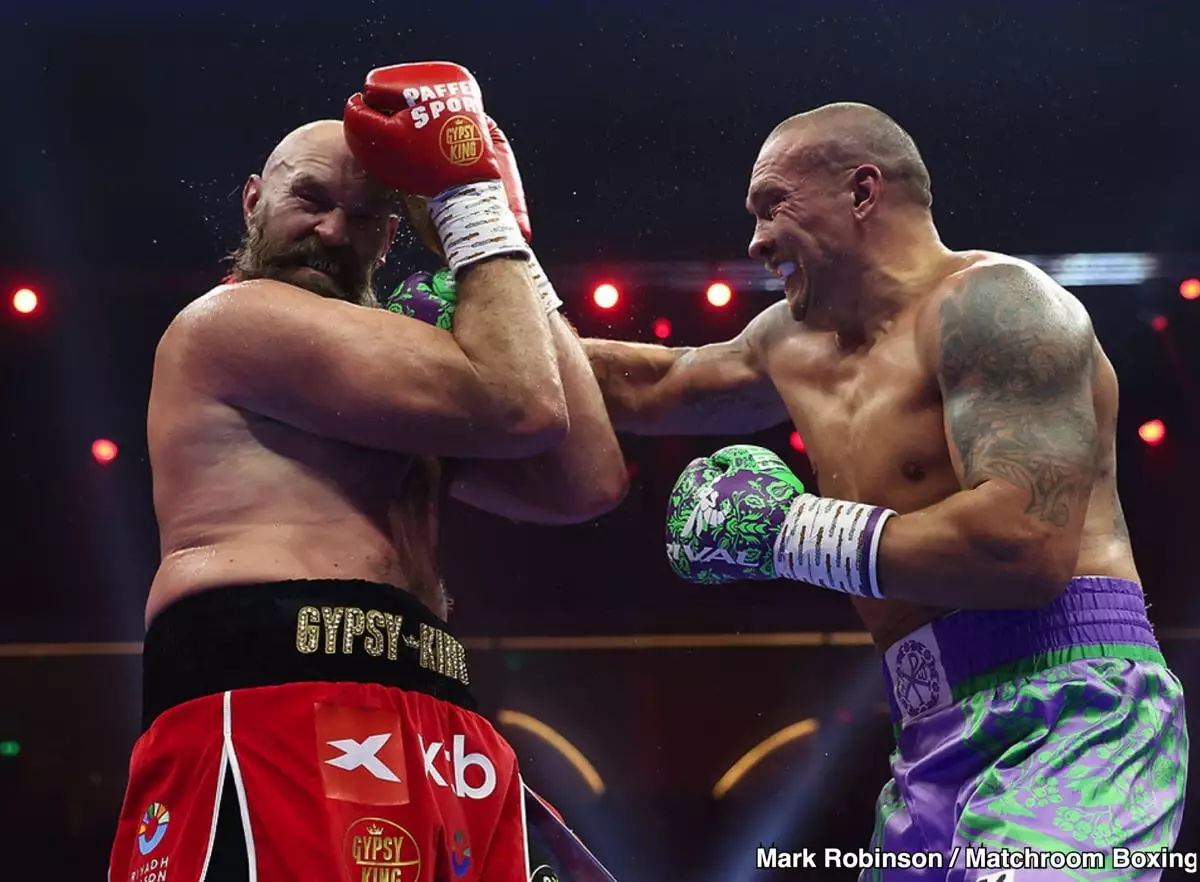Over the past several months, heavyweight boxing has undergone a significant transformation, marking a revival that many enthusiasts of the sport have eagerly anticipated. The catalyst for this change has been the ambitious Riyadh Season initiative spearheaded by Turki Alalshikh, the Chairman of the General Entertainment Authority in Saudi Arabia. This innovative approach has harnessed the immense resources available in the region to attract world-class boxing events, effectively positioning Riyadh as a premier destination for high-stakes fights.
Historically, heavyweight boxing has served as the sport’s backbone, a fact that resonates deeply within the boxing community. A vibrant and competitive heavyweight division is essential for the overall vitality of boxing, and the events under Riyadh Season have revitalized interest among fans. With a series of compelling matchups, the heavyweight landscape has become clearer, showcasing established champions and nurturing emerging talents. This blend of excitement is vital in ensuring that boxing retains its status as a major spectator sport.
Tyson Fury and the Financial Allure of Riyadh
One of the most significant players in this resurgence has been Tyson Fury. In a statement made in September 2023, Fury expressed his reluctance to pursue unification fights, preferring instead to chase lucrative matchups. This created a unique opportunity for Alalshikh, who extended a substantial offer to Fury, presenting him with a high-profile bout against former MMA champion Francis Ngannou. Fury’s performance in this encounter was perhaps less than stellar; he struggled with an underprepared strategy and was knocked down early in the fight. Nevertheless, he managed to clinch victory, reinforcing Riyadh as a mecca for highly profitable boxing events.
Fury’s initial hesitance towards unification soon gave way to a resolved determination. By May 2024, he agreed to put his WBC title on the line against Oleksander Usyk, who held the IBF, WBO, and WBA belts. This historic clash was pivotal in establishing a considerable force within the heavyweight division. Usyk’s victory marked him as the first Undisputed Heavyweight Champion of the four-belt era, further solidifying the significance of Riyadh Season in shaping the direction of heavyweight boxing.
In the wake of Usyk’s triumph, the heavyweight division remains buzzing with potential and promise. Riyadh Season has not only celebrated established champions but has also shined a spotlight on a new generation of fighters. Noteworthy contenders like Australia’s Joseph Parker and England’s Daniel Dubois are set to face each other soon, adding anticipation to an already charged atmosphere. Meanwhile, Anthony Joshua, despite dwindling in popularity, still possesses the drawing power to engage fans, especially if matched with Fury, a bout that has captured the imagination of boxing aficionados for years.
Conversely, former champion Deontay Wilder, although unable to secure victories in his latest bouts in Riyadh, remains a significant figure due to his knockout prowess and star power. The possibility of a long-anticipated clash between Wilder and Joshua, a fight that many believe was missed in 2018, is back on the radar, thanks to their exposure during Riyadh Season events. Additional emerging talents like Martin Bakole, Zhang Zhilei, and Jared “Big Baby” Miller have also made their mark, indicating a competitive resurgence in the heavyweight ranks.
A Broader Impact Beyond Heavyweights
Although heavyweight boxing may be at the forefront of Riyadh’s initiative, the influence of Riyadh Season extends into other boxing divisions as well. The cruiserweight category, featuring competitors like Jai Opetaia and Gilberto Ramirez, is also benefitting from the increased attention and competition fostered by the season. This dynamic could culminate in exciting matchups well into 2025, with cruiserweight champions potentially transitioning to heavyweight competition.
The plethora of matchups made possible through Riyadh Season has played a crucial role in clarifying the current heavyweight hierarchy. Long-demanded fights are being executed, and the results are elevating discussions surrounding rankings and future matchups. Such clarity is vital in a division often critiqued for its perceived lack of depth. It signals to emerging boxers which battles they need to win to ascend to the upper echelons of the sport.
Looking ahead to 2024, the implications of Riyadh Season on heavyweight boxing are unmistakable. This innovative series of events has revived the division’s prestige and reignited fan interest. Turki Alalshikh’s vision has not merely revitalized a segment of boxing; it has reignited passions and enthusiasm for heavyweight matches, projecting the sport back to its rightful place at the forefront of the boxing world. As discussions about future matches swirl and anticipation builds, it is evident that the legacy of Riyadh Season in heavyweight boxing will endure for years to come.


Leave a Reply